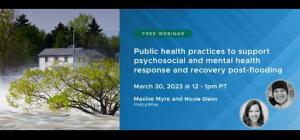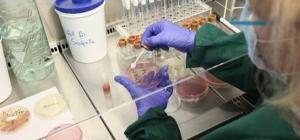
Interdisciplinary foodborne outbreak investigations
Outbreaks of infectious foodborne diseases continue to affect populations across Canada, with potentially severe impacts on susceptible groups such as children, older adults, immune compromised individuals, and pregnant women. While some outbreaks can be rapidly attributed to localized sources that can be easily contained, globalized food systems are leading to much larger and more complex outbreaks that can be challenging to investigate. Under ideal circumstances, multiple interdisciplinary stakeholders work together to (1) identify the affected individuals and common exposures, (2) isolate the specific pathogen, (3) find the food source(s), (4) contain the outbreak, and (5) communicate investigative information to health partners and the public. Investigative models considers information from three sources: laboratory, epidemiological and food safety investigations. Close collaboration with public health laboratories ensures that modern tools such as whole genome sequencing (WSG) can be used to link pathogens sampled from affected people with those sampled from candidate food sources. As there is an increased need for interdisciplinary foodborne outbreak response, guidance on effective collaboration and emerging technologies could help to support more effective investigations.
About the project
This project aims to support effective multidisciplinary foodborne outbreak investigations. It will develop guidance on the use of emerging technologies, such as WGS, and clearly outline the roles and responsibilities of various stakeholders. In particular, this project will focus on how environmental public health professionals can support investigations by collecting and communicating information to stakeholders and contributing to outbreak summaries.
Project outputs

Supporting foodborne outbreak investigations: A review of the use of whole genome sequencing and emerging technologies (Diplock, Oct 2022)
This review focuses on the use of whole genome sequencing and other emerging technologies in foodborne outbreak investigations.

Foodborne illness outbreaks: Roles and responsibilities (Diplock, Feb 2023)
This report examines foodborne outbreaks focusing on the roles and responsibilities of EPHPs in different foodborne outbreak categories. It also includes a downloadable RACI (Responsible, Accountable, Supporting, Consulted, and Informed) chart to support planning of an interdisciplinary foodborne outbreak response.
Foodborne illness outbreaks: Recommendations for collaborative investigations (Diplock, May 2023)
This report will draw on the previous outputs in this series to develop guidance for common foodborne outbreak scenarios. Best practices will be based on reviewed literature, key informant interviews, and case studies of effective interdisciplinary outbreak investigation.
About the author
Dr. Ken Diplock
Dr. Ken Diplock is the coordinator of the Bachelor of Environmental Public Health (BEPH) program at Conestoga College. Before joining Conestoga, Ken worked as a certified public health inspector with the Region of Waterloo Public Health and was actively involved in the Canadian Institute of Public Health inspectors (CIPHI). His research focuses on foodborne outbreak investigation as well as food safety education initiatives.








